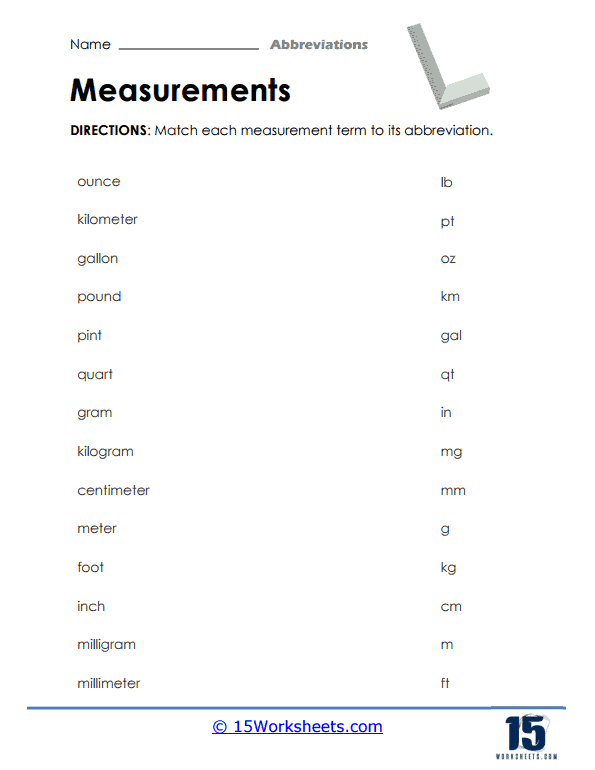Measurement Abbreviations

Worksheet Description
In this worksheet, students match various measurement terms to their corresponding abbreviations. Once accomplished, this worksheet can serve as a useful reference for students to help retain their knowledge and be more familiar with measurement abbreviations.
Measurement abbreviations are shortened forms of words or phrases related to units of measurement. They are used to represent various quantities such as length, mass, time, volume, and more, and are employed to save space, simplify communication, and improve readability in written materials.
Learning measurement abbreviations is important for students for several reasons:
- Fundamental concepts – Measurement is a key concept in various subjects, including math, science, and engineering. Understanding measurement abbreviations helps students grasp the fundamental principles in these fields and apply them effectively.
- Efficient communication – Knowing measurement abbreviations allows students to communicate more effectively in written and verbal formats, particularly when discussing numerical data, experimental results, or technical information.
- Enhanced reading comprehension – Familiarity with measurement abbreviations improves students’ ability to accurately interpret and analyze texts, articles, or academic papers that involve units of measurement.
- Cross-disciplinary connections – Measurement abbreviations are used across different subjects, such as physics, chemistry, biology, and geography. Recognizing these abbreviations helps students make connections between various disciplines and comprehend the underlying concepts more easily.
- Real-world applications – Understanding measurement abbreviations is essential for everyday life and future professional endeavors, as units of measurement are used in various contexts, such as cooking, construction, transportation, and shopping.
In summary, learning measurement abbreviations is important for students because it helps them develop a strong foundation in various subjects, enhances problem-solving and communication skills, fosters cross-disciplinary connections, and prepares them for real-world applications and global situations.
